
Worms are fascinating creatures that play a vital role in composting and soil health and are more than happy to get food waste off your hands, provide you with some “black gold,” and help you reduce your carbon footprint.
Worms are like people, you see; the quickest way to their hearts is through their stomachs. But hold on! Before you start tossing any food scraps into your compost bin, you need to know what NOT to feed worms to keep them healthy and happy. Just like humans, they have their preferences when it comes to food.
It’s time to dive into the do’s and don’ts of worm cuisine! Familiarize yourself with the list of foods worms should not be fed, and you’ll gain valuable insights into what types of treats worms love and what makes their “ew” list so that you can have a thriving worm population and rich soil. Get ready to tantalize your taste buds with some surprising insights on what not to put in your worm farm!
What Can’t Worms Eat? A Comprehensive List of Composting Worm Feeding Don’ts
Composting worms live in a condensed, confined area of a worm bin, so it’s important to keep their environment free of certain types of food that they don’t like or that can harm them. For instance, the pH levels of the bin cannot become too acidic, or it will create a toxic environment and harm the worms, which is the case when feeding them acidic food and food scraps with high sugar content.
Also, since worms breathe through their skin, certain food will irritate that process. Other foods will stink up really bad when thrown into a composter, and, on top of that, the bad smell can attract unwanted guests such as fruit flies, rats, and other vermin. These are just some of the reasons you should avoid putting the following food scraps into your worm composting bin or worm farm.
So, what can’t worms eat? What can you not feed worms?
- Fatty foods and oily foods, such as meats, bones, fat, and other greasy food and animal products
- Dairy products and starchy food, including butter, sour cream, milk, cheese, and whole eggs (crushed egg shells are OK)
- Canned sauces, peanut butter, and other processed food or cooked foods containing these
- Citrus fruit like lemons, limes, oranges, pineapples, and other highly acidic fruit
- Onions, garlic, and other allium plants (onion skins are fine in moderation)
- Salty and spicy foods such as hot peppers
- Rotten food filled with harmful bacteria
- Yard trimmings that have been treated with pesticides
- Plastic, metals, glass, or other non-biodegradable items
- Soap
- Shiny paper that has a glossy finish or colored ink
- Poison ivy, oak or sumac, or other poisonous plants.
If you’re a worm farmer, and especially if you have a larger-scale vermicomposting system such as outdoor composting worm bins or a worm ranch, then buying plenty of fresh fruits and veggies will do you and your compost worms a lot of good. Always keep your squirmy pals in mind when shopping at the grocery store, and avoid these food items at all costs!
Bonus Feeding Tips: Dice It Down & Keep an Eye on Water Content
Simply knowing what not to feed worms and what not to put in worm farms won’t cut it. Anaerobic conditions and toxic environments are bad for compost worms, so you need to be careful and balance the moisture levels in your worm bin, too, especially when adding wet food.
Always cover the food with bedding – add a layer of soil on top of exposed worm food when feeding to minimize bad odors and keep any pests and insects away, especially if you have an indoor bin. Help your critters chow on and digest their snacks more easily by giving them soft food or cutting it into small pieces to help the decomposition process. You can simply give it a spin in a food processor.
And, be careful about how often you feed your population of worms as well as the amounts of food you treat them with – keep their tummies full, but don’t go overboard! In general, worms can eat up to half their weight in food a day. So, a pound of worms will eat about half a pound of food scraps per day.
The Ideal Worm Diet: What Is the Best Food for Worms?
So, what can worms eat? If you’re looking for another reason to eat healthier, your wiggly pals may be it! Worms can eat almost any organic matter that was once living, from brown matter to green matter, which includes many healthy foods such as dry grains, fruits, and vegetable scraps! That’s a pretty good incentive to buy some fruits and veggies – their favorite food – more often. It’s great for your health and also makes great worm food for your small wiggly friends. It’s a win-win!
One small problem some people run into is choosing the wrong food for their worms and trying to feed them wor food on the non-approved list! If your eating habits include more processed food than organic food, then you may find some difficulty in coming up with enough organic matter to feed your live worms. We’d be talking about meats, dairy foods, and processed foods of epic proportions here, and an almost utter absence of fruits and veggies, so you probably don’t fall into this category!
Perhaps the household in which a worm farm would thrive the most and find the greatest abundance of food is a vegetarian one! This isn’t to say that people should avoid meats, dairy, or even yummy desserts, but worms love organic materials, so it’s always good to have a little on hand, and most people do. After all, their natural diet mainly consists of organic waste and organic food sources.
So, what to feed worms? The more fresh fruits and vegetable waste you feed your worms, the better. They prefer a diverse diet that includes a mix of different organic materials. Otherwise, your worms will have to settle for a steady diet of coffee grounds, dead plants, dry leaves, newspaper, and egg cartons.
And, although these wiggly wonders do love nibbling on shredded paper bags, shredded cardboard boxes, and even vacuum cleaner dust from time to time, as they are a great source of carbon, that doesn’t sound too appetizing in the long run, does it?
Compost with Confidence Knowing What Not to Feed Your Worms
A carefully balanced diet is the key to healthy common composting worms and nutrient-rich, organic compost – the natural, organic fertilizer for your garden. And you know what this means – a thriving oasis! So, now that you know what not to feed worms and what not to put in a worm farm, do your best to avoid tossing in these food items to your little wigglers.
Keep the junk food out of their compost bin and let them dine in style on the good stuff. After all, a well-fed, happy worm is a composting hero. Happy vermicomposting! Want to learn more? Check out our wide selection of composting books to master the art of vermiculture.

FAQ
Ah, the mysteries of vermicomposting! Let’s dig in and explore these common questions about what not to feed worms and what makes the perfect diet for our wriggly friends.
What Are the Best Things to Feed Worms?
When dwelling on what to feed worms, it’s best to go for a balanced diet of juicy fruits, vegetables and their peels, squash, crushed eggshells, coffee grounds, tea bags and tea leaves, grains, and aged lawn clippings (avoid fresh lawn clippings, unless you want a hot mess in your bin!). Bon appétit, worms!
Why Can’t Worms Eat Dairy?
Well, it’s not that worms are lactose intolerant or anything of that sort. Dairy products tend to be high in fats and proteins, which can be difficult for our humble worms to digest. You see, worms have a delicate digestive system that thrives on a balanced diet of organic matter, like fruits, vegetables, and other plant-based scraps.
Dairy, on the other hand, can be a bit too rich for their little tummies to handle. So, dairy products should be on your “what not to feed worms” list while you stick to more worm-friendly options.
Do Worms Eat Plants?
Yes, worms are known to feast on organic matter, including plant material. However, they prefer decaying plant tissues – from dead roots and seeds to dry leaves and animal manure. It’s the circle of life in action, as these composting gourmets turn nature’s leftovers into soil-enriching treasure.
Do Worms Eat Grass?
Absolutely, worms definitely like munching on aged, dry grass. Freshly cut grass clippings may raise the temperature in their bin to uncomfortable levels, so it’s best to let it mature and dry out before serving it up to your wormy pals.
Is Rice Bad for Worms?
While rice may seem harmless, you should avoid feeding it to your compost worms. Uncooked rice can expand and harden in a worm’s gut, causing discomfort and potentially obstructing its digestive tract. Cooked rice, on the other hand, can become too starchy and can create a gooey mess in the worm bin, which can lead to unpleasant odors and even attract unwanted pests.
So, it’s best to avoid feeding your worms rice altogether or only sparingly provide them with small amounts of cooked rice.
Can I Feed My Worms Every Day?
No, you shouldn’t. Worms are pretty hardy creatures, but they do have their limits. Overfeeding your worms can lead to a buildup of uneaten food, which can create an imbalanced environment in their habitat.
Worms eat at their own pace, so it’s best to feed your worms in moderation, giving them enough time to process the food before adding more. A general rule of thumb is adding more food once the previous batch has been mostly consumed, which usually takes about a week.
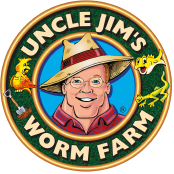

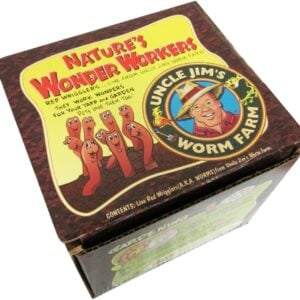
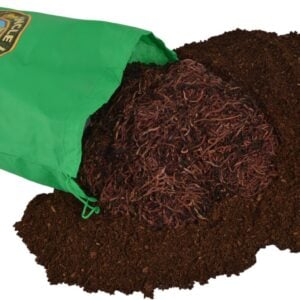
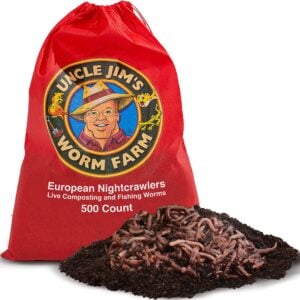

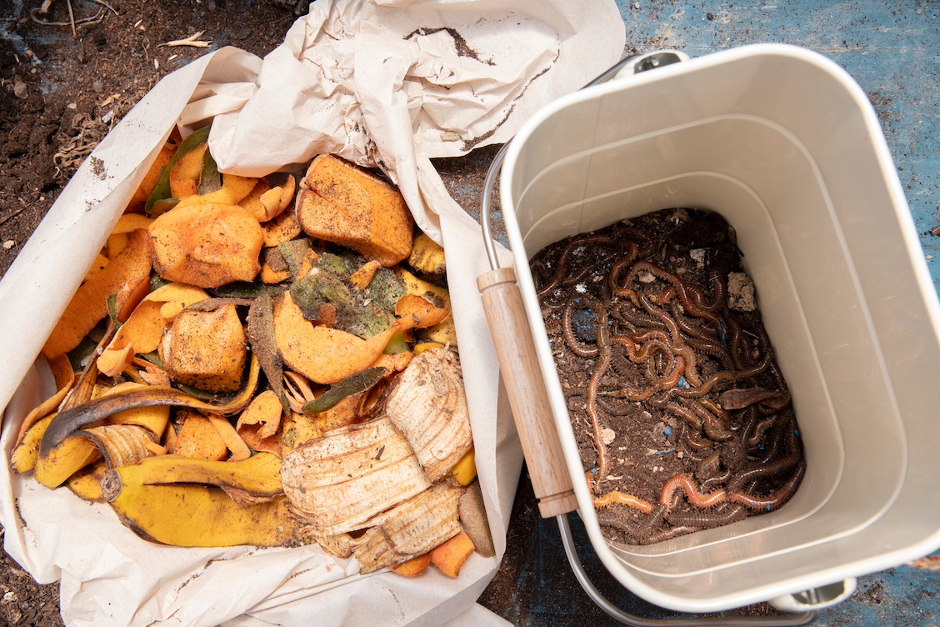
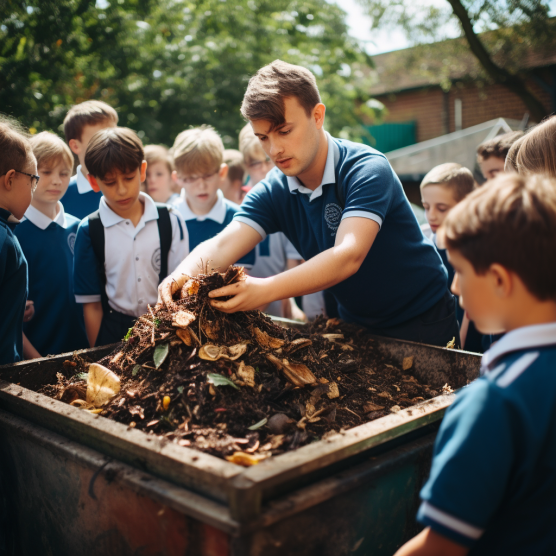
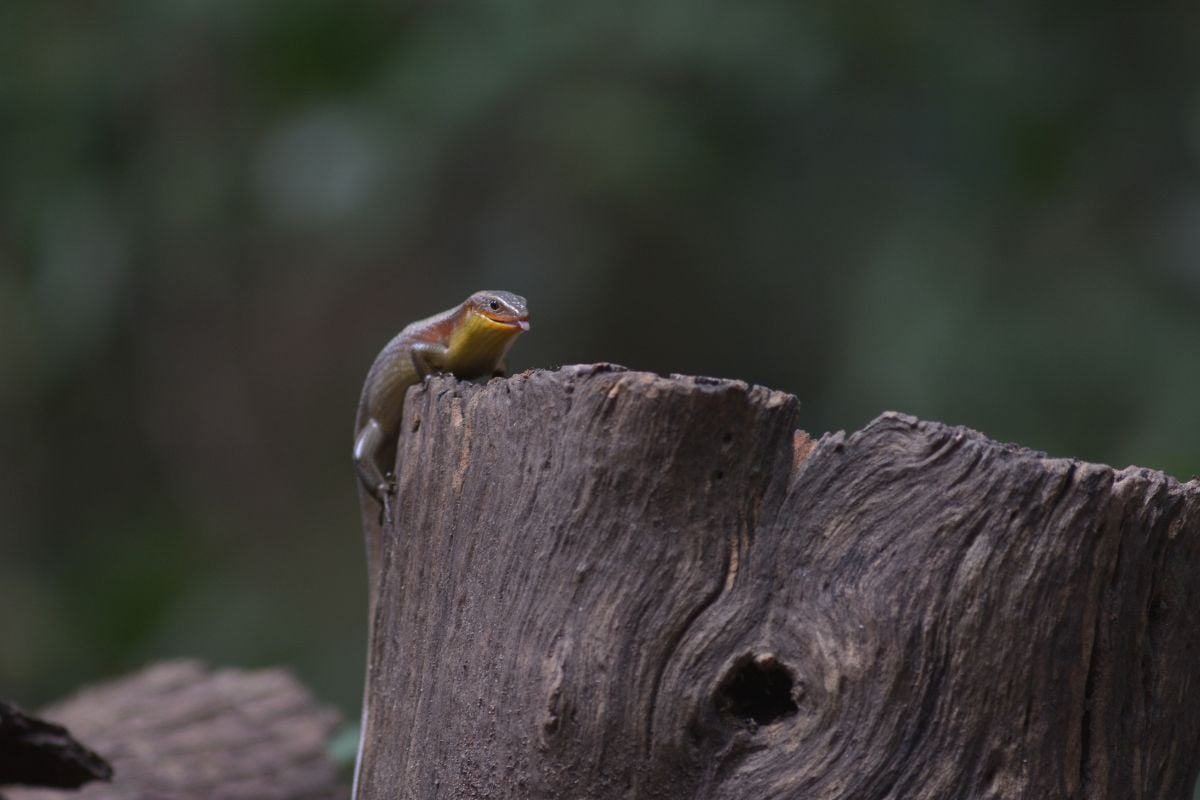
117 thoughts on “The Forbidden Foods: What NOT to Feed Worms in Your Compost Bin”
I have a magnolia grandiflora tree can I.feed fallen leaves and flower buds fro
m it to my red worms?
No onions, garlic, peppers? Why not? I would like some validated and vetted research reason. I eat LOTS of peppers, and of course most pepper dishes include onions and garlic, too. I understand the citrus/acid stuff. But tell me, are you saying they can’t eat spicy foods? They don’t have taste buds or stomachs like ours, so why not? Or was this just gleaned from some “mother earth” forum influenced by personal orientation more that scientific fact? Not meaning to be a jerk here, but really want to know the scientific reason behind some of these comments. p.s…my red wigglers are thriving and I have been feeding them pepper, onion, and garlic scraps for over a year.
If they are thriving then I would disregard. Just my personal opinion.
I think the point of onion and garlic is more that it’ll create strong and/or bad smells
All of my food I compost except for meats and cheese, allowing it to break down until it’s very earthy and then I feed them it and that includes red peppers onions garlic and citrus. My worms have never had a problem with this process.
What is the point in doing a two step process in composting? The worms will do it far quicker.
A two step process is wonderful for breaking everything down so the worms can finish the job with their special magic. the Bacteria from their digestion system is what takes compost to another level.
Onions, garlic, tomatoes as well as spicy is too strong for their skin and the compost breakes it down for the worms to process it.
I’ve never known anyone to become so defensive over worms….
I haven’t been composting long, but literally every resource I’ve used has agreed with this page that onions, citrus and hot peppers are a no-go. This includes a large composting facility in the area.
From another site: the natural chemicals and acidity in citrus peels and onions can kill worms and other microorganisms, which can slow down the decomposition in your pile. Unless you chop them into tiny bits, citrus peels take forever to break down which will delay how soon you can use your compost.
Smell the compost after garlic and onions have been added. The smell lingers a very, very long time. I am new to worm composting, but not regular composting. If I add the onions and garlic to my pile it won’t go away so I can understand why worms won’t like it. On the other hand it doesn’t sound like it will kill them so try it if you want. My pile with the onions I am thinking of spreading it around my lettuce plants to see if it will help deter slugs. Might be a nice natural solution.
how did you go with putting onion around the lettuces?did it work?
I know this is a late response, but I believe the reason they can eat onions, peppers, or garlic is because they are oily and/or greasy. They must not be able to digeste things that are like that.
Put pepper on your skin or eyes an see what happens
Please help me understand why I shouldn’t put cheese into my worm vin. Thanks!
I am going on my 7th year of composting. The amount of food waste that is broken down is no more than a 4×2 wood box and this is what I have been feeding my worms for the last year and I am continuously adding food waste to this box.
wow great job! 7 years is a lot. Hope nothing happens to your compost or you the worms inside of it.
Is it safe to used pulverized unsalted peanut shells in the 360? I have looked on the website some sites say yes other sites say no so I thought I would ask the experts thank you
They will take peanut shells but it takes time. They are ok with it if crushed or better still put through a blender (with water). I think the issue is getting water into it and getting a very large surface area allowing bacteria to get to the material (the worms eat the bacteria).
FACT: NO redwood of any kind, kills em!
How wet should the soil be for the worms?
Grab a handful. If it is dripping wet, it is too wet. Add newspaper. If you squeeze the soil and no water comes out, it is too dry. Add water.
Why cant they have meat ?
Please answer within the next 45min…
They can eat meat, but it takes a long time for the meat to decompose enough that they can eat it. While decomposing, the meat stinks and attracts vermin.
Meat requires a different set of animals and bacteria to break down – the most common being flies and blue bottles (and maggots).
Question from Perth, West Australia, worm farmer – how much sugary fruit do worms tolerate. Got a lot of over ripe grapes on my vines. Thought my red wrigglers would like an “aged chardonnay ” squashed grape skin or three in their regular meal of kitchen scraps, peelings etc. Cheers, Ken M
I’m doing a science fair project and I’m wanting to know what to feed them
Go worms!!
Examples of Worm Food
Fruit: apples, pears, banana peels, strawberries, peaches and all melons
Vegetables: beans, cabbage, celery, carrots, cucumbers, tomatoes, all greens, corn, corncobs and squash
Cereals and grains: oatmeal, pasta, rice, non–sugared breakfast cereals, corn meal, pancakes
worms eat eggshells and tea bags
Miscellaneous: coffee filter paper, tea bags, eggshells, dead flowers
Other food/bedding: newspaper (no shiny or coated paper), cardboard, paperboard, paper egg cartons, brown leaves
I had a couple of honeydew melon slices get a little old and go moldy. Will mold hurt worms?
I’m helping to manage a composting station at work and I incubated a set of worm cocoons about 2 months ago, which have grown into full adult size worms. I have used different sets of combinations of veggies, in various states of decomposition. I found that if the item is moldy, its fine, I either work it in with some extra lettuce, or something else the mold can help deteriorate or I check the soil in my bin to see if its too moist. If it is I add some more soil, or some peat moss into the existing soil (after separating some from the bin as not to dry out the worms’ skin) to reduce the water content of the soil and balance out the moisture from the rotting vegetables. I have had a new set of worm cocoons which leads me to believe that my experiment is working. I agree with the lists above as far as the veggies and fruits to give. They LOVE cantaloupe, or honeydew melon. You can tell if you notice how quickly (providing the soil temps are right) the worms go through a few pounds of food. They can be voracious little ones. Its definitely very cool to watch them grow and flourish.
Hi. I don’t think I have the red kind of earthworm. I found one in my flowerpot eating all the roots. He is dark and very long. What do their eggs look like?
I don’t want them to make soil, I want to make them to put them in the garden to make the soil better..
I’ve been feeding my worms onions, garlic, chilli and citrus and they are thriving so I don’t get this info. Does it effect it’s output because and face value there is nothing fruit or vegetable that they don’t like
Hi, I am wondering if composting worms will eat geotextile fabric?, I am building above ground vegie beds and am going to line the bottom with geotextile fabric, and make a nice cosy corne in the vegie bed for the worms with access to the soil in the vegie bed, and I thought that maybe the worms might eat the geotextile fabric and be able to escape through the bottom of the box after chewing their way through
Can they have grated ginger?
I wouldn’t feed it to my girls, I would put ginger in the too spicy department along with chilli and horseradish.
On the topic of ‘what NOT to feed”…..I know tomato greens can be bad for human and animals to eat, but since they are a plant are they ok for the worms?
I have a jar of sauerkraut which I won’t eat, it is fresh. Can I feed it to the worms, or will it be too salty?
I would think it’s more the vinegar in the the sauerkraut than the salt. Vinegar is an acid, and that’s probably far to caustic for worms’ skin.
The “do not feed” list pretty much kills it all for me. Almost ALL newspapers have colored print throughout. I use a lot of citrus, garlic, onion and some spicy peppers with almost every meal.
To parse this stuff out will make too much work for it to be worth it. My time is valuable, and when I invest in a worm farm I did it for convenience sake.
We use a grain grinder to grind down a lot of foods into meal. but i was curious. Would worms have an issue eating dried beans? Like pinto beans that we have crushed down with our grain grinder in to a powder. Similar consistency to powdered commercial worm food.
Can I feed my worms mushroom bits ? We eat tons of mushrooms and there is always some small pieces leftover from the prepping.
They actually love mushrooms
Been doing composting since the early 70s. Lots of temporary screw-ups (trying to compost all-grass or adding weeds that have already gone to seed or stem/branch parts that haven’t fully dried out so re-root — like Forsythia stems or many kinds of vines) and tons of successes.
Try adding small amounts of wood ashes to the citrus and allium family detritus and a general scattering of it every so often through the year. It neutralizes the acids. Sugary fruits OK if lots of the carbon materials (egg cartons, paper product rolls, used tissues, cotton-only dryer lint, non-shiny non-colored newspaper, worn out paper bags, bare cardboard, oak tag “single layer un-coated cardboard, hair trimmings and hair brush collections, etc. torn/cut up into relative small pieces) added at the same time and mixed in well. Also, tree leaves in the fall do very well as the carbon component, too.
Egg shells I no longer add directly. Instead, I let them air dry in an empty metal can and when the can has a dozen or two empty shell sets I place it in an hot oven after baking or roasting and the heat has been turned off. Once the oven is cold, I remove the can and shells and use an empty beer bottle or wine bottle to use like a mortar and pestle to grind them into small bits. These then get sprinkled onto the vegetable growing areas, especially the tomato and pepper ones, as bio-available calcium that doesn’t alter the soil Ph but does prevent blossom end rot. (The heating makes the remaining proteins in and on the shells very brittle and the bits of shell more usable in a short time by the plants.)
If you have a lot of seeds from seeding or preparing fresh fruits or seedy vegs, try residual oven heat to make them non-sprouting, thus keeping them from becoming weeds themselves. Strawberries don’t count.
The most important things to keep out are salt, animal fats, dairy and meats from land animals. Un-salted, un-smoked fish remains are very welcome. Just bury them under a few inches of already working material.
Oh, and one more thing:
NEVER USE THE POOP OR PEE OF CARNIVOROUS PETS! Or in-house birds. NOT IN THE COMPOST OR THE GARDEN ITSELF. There are parasites present that you do NOT want to breed or ingest or expose wildlife to.
Can I use Chinchilla poop that are like dried pellets in the soil?
I use quite a lot of vinegar for cleaning including in the toilet. We have a worm septic. Will the vinegar kill the worms. Do worms dislike vinegar, as it’s an acid? Thanks.
I need to know if and how soap is a problem for earthworms??? I use eco-friendly dish soap, then water my herb garden pots with the run-off. But I am concerned it may harm my earthworms. It certainly harms pests–aphids, mealybugs, etc–on my plants. Please LMK how it affects earthworms ASAP.
My population has decreased over the last 6 months. Given it’s been very dry here in SoCal.
Jennifer, sorry for a late reply, it’s my first time on the site. Almost all soaps and cleaning products have sodium. Very bad for plants. I have a large garden with a total grey water system, except toilets, and have searched long and hard for no/low sodium cleaners. The Ecos… line are good, very little sodium. Smart & Final is the best source. I buy unscented Castille soap, potassium based/no sodium, from Bulk Apothecary in gallons online at a third the cost of Dr. Bronners. Don’t use household bleach. Use hydrogen peroxide. Again, Smart & Final by the gallon. Happy gardening!
Greg Y.
Can compost worms eat raisins? I get too many in my breakfast muesli and throw some away. It wouldn’t be a lot… maybe a small handful 3 times a week. Is it too much sugar or do raisins take too long to decompose to make it worthwhile?
Thanks
can i feed mud apple peelings yo my red wrigglers?
Do red wigglers eat weeves or will the weeves kill the worms?
I’m in my 60’s and have been gardening with earthworm composting since my teens. My Dad had an earthworm farm and gave me a pound that I added to my compost pile. Only way to go! I only restrict raw meats from the pile. With a gray water system, I channel greasy kitchen waste to the worms. I also include a lot of citrus, even whole grapefruit from my garden that don’t make the grade. These guys chew through everything in no time. I constantly add chipped garden waste, cardboard, paper and kitchen scraps. They are never more than 2″ below the surface within a few days; a beautiful writhing mass. Just my experience, maybe because of the total high volume of high carbohydrate waste they get. Happy worming!
Can I feed my wormery with flowers and flower stalks? Are daffodil stalks and flowers poisonous to worms?
I’ve been composting with worms for over 10 years now so have a fair bit of experience. I feed them everything that has been in my kitchen along with the contents of my vacuum cleaner and 100% cotton kitchen cloths, hair, dog fur etc. I often put scraps through a blender first, especially citrus and onion scraps. When I blend I will add a little bokashi bran to the mix and if lots of citrus lime too. I also have bokashi bins where some of my scraps and my little dogs poop goes. Once fermented (about 2+ weeks) I feed that to my worms too. The bokashi includes occasional cooked meat and ground fish and chicken bones too. I do add worm pellets, lime etc every now and then to keep the acidity levels at bay and my worms thrive. None of what I do is no more time consuming than taking it all to the food recycling box that the council then take away. I also feed my worms my kombucha scrobies and excess kefir grains. My point to all this is I feed my worms everything and don’t fuss too much as long as they are munching I figure they’re happy. I did double check a while back with a “professional” worm breaded/farmer and the advice was worms eat everything. For those who claim using worm castings which contain dog poop is wrong consider the following. Is your garden free of neighbouring cats who use anyone’s but their own garden to defecate in? If you have vegetable or fruit patches I can guarantee they have peep and pooped there! If your doggie poop has been pickled in the bokashi bucket first and then fed to the worms it will be a lot less toxic than any soil already present in your garden. An interesting read is http://www.carryoncomposting.com. Something else I always do is shred all my cardboard through my paper shredder rather than tearing it up into little pieces but you need a shredder that can cope with several sheets of paper at the same time.
Are Mango’s okay to feed my worms???
I have several jars of bee pollen, from a failed experiment adding it to my dog’s food, he suffers with allergies. It seems that this high protein source would be ideal for my worms, but I can find no mention of it on line. Anyone have any experience?
Please help – I have some ecoli infected lettuce – recent store warning – I hate to waste it – but not sure about giving it to my compost worms – can’t find any info .. please let me know what you think … Thank you
I wouldn’t, Ecoli is a virus and would probably kill them.
I just put in clipping from my herb garden (LOTS OF THEM) and they suddenly are fleeing the bin. Basic stuff: mints, cilantro, sage,, chives (all the herbs LOL). Maybe they are just too fragrant as they are so fresh. I mixed it up hoping that as they dry the worms will be more affectionate.
I saw a video on YouTube, after harvesting about half the worms from his wormbin, he put in a large chunk of cow shit & covered it with several Sunday Newspapers, soaked in water for a week. He then put a lid on it & said it’s good, just keep the newspapers wet.
I have lots of pine needles in my yard. Can I feed them to my red wigglers?
How do hot peppers effect worms. Capsaicin which is what makes hot peppers oil is an oil that mammals sense as heat. It is a fake heat. Worms are not a mammal. I don’t believe that they have receptors the sense the heat from capsaicin. I have fed my worms ghost pepper scraps. I have seen tomato horn worms munching on pods from my hottest pods.
I’ve been putting rabbit manure in newspaper cat litter (with baking soda) in my compost, and the worms have disappeared. Could it be the baking soda is toxic to the worms? If so, is there a litter which would not harm the worms? How about pine litter?
i have a few banana trees can i feed my worms chopped up banana trees thanks
Worms love the string algae from my ponds btw in case you compost with worms and have a pond. All citrus leftovers from the orchard such as lemons, grapefruit, tangerine go to the compost bins with worms. They seem to love it as they produce perfect compost very fast. Worms love paper bags from the grocery stores. Never had any issues and produce bins and bins of compost with worms for the banana plantation. Old banana trees go back into the compost as well. All good! ;-)
What about ginger peel/skin?
Can you bring your theater popcorn and put it uneaten popped corn and kernels into the worm compost housing?
Quick question, is cilantro and other herbs like fresh thyme basil, dill, and such okay?
I see a comment about using human hair cut up for browns. Can I use fur from my Ragdoll cat? I groom him every day and get tons on the brush.
Also, are dry Podocarpus leaves toxic to worms?
I also have lots of redwood needles but those are toxic, right?
I added quite a bit of radishes greens. The worms hated it and it smelled very bad! Had to remove the lot and clean the container…
Worms are lactose intolerant.
I read somewhere that worms love hair from dogs.
Worms love hair
Will my worms do OK with macadamia nuts that have gone rancid? I don’t want to poison them :-)
Are mushroom stems ok to put in worm bins?
Can I feed them cherry tomatoes?
Bought some earthworms. Set up a bin the proper way and noticed they were mostly clumped up around a decomposing banana but still alive. After a few days they were alive but hadn’t moved much. Added some steer manure compost and it was like I had poured acid on them? They were moving like crazy! I had read that they were ok with manure but apparently not because it seems to have killed them. Wtf? Where’s the info I missed on this issue, I’m really bummed by this?
I believe you have to compost the steer manure 1st. I get composted horse manure locally – he puts it under a tarp for the winter to break it down. Fresh would be too acidic.
It is possible fresh steer manure may contain residual de-worming / anti parasite chemicals used on the livestock?/
Good Day,
Are potato skins good for worms?
Thanks.
What kind plants could I plant around the worm farm. I was think mint, lemon grass, citronella.
Can beekeeping waste be feed to worms? Old honey bee cocoons?
I too see no reason to gasket over what not to feed worms. Either take the advice you asked for it don’t. I would like to know if pine straw is ok? I have small pile a year or two old.
Thuy Nguyen, regarding feeding theatre popcorn to your worms, I’m wondering if the popcorn is salted and coated with butter? I have heard that fat is not conducive to worm health and I can’t imagine that a high saline environment would be either. Just my thoughts, tho : )
Hi, I am feeling awful.. My homemade worm bin has been doing so well! Today I accidentally sprayed my worm bin with white vinegar because I thought it was water. Will they die? What can I do to help them?
Can you feed worms ground up crab leg shells and mussel shells ?
After reading some of the comments here, it seems that there might be a miss conception about how the worms eat. They do not have teeth. They cannot chew. They do not consume the veggies. The bacteria and fungi decompose the materials. The worms suck the juices resulting from the decomposition. If anything is chewing, it’s some other critters introduced into the environment.
Denise, worms do consume the veggies among other things. consider how a snake eats/sucks it’s food in. …Once worms have eaten their food by scooping it into their mouth, it travels into their gizzard, which is an organ in their body that grinds it up. … The parts of the food that they can’t use passes out of their body as waste, called castings, and goes back into the soil. …this video might help you understand more. https://www.youtube.com/watch?v=2Pa1FwmKZcQ
Why do worms not like garlic and onions?
WORM POPULATION issue.. Help! If the compost is not wet enough, can that kill the worms? I was checking 1/2 the bin today for worms (the half without food on it (just moved it yesterday) but finding HARDLY any worms. My soil feels damp but definitely nothing can be wrung out so i added water. I’m worried they’ve mostly died after purchasing 1000 reds 3 weeks ago. On the other hand the food is also disappearing. And i have soil mites that move quickly and some white mites, which I hear are not harmful for the soil or the worms and pretty typical. Any ideas or suggestions?!
Worms love squash right? Too bad, I ate those. My plan is to mulch the squash vines in a food processor, and later the watermelon vines too, and feed those to the worms. How are worms going to feel about eating the vines instead of the fruits?
I have access to a furniture manufacturer where at least douglas fir, birch, walnut, oak, and maple are used. If I use sawdust to feed my worms, will they have a problem with any of these?
I have untreated pine pellets. Can I use this as bedding or a part of the bedding?
grapes are fine… in any quantity as long as they dont ferment. the alcohol will make your worms flee – and if they cant get away , they will die.
Do red wigglers like to eat herbs? I’ve read that some herbs aren’t great for worms. Lemon balm is one example. Currently I’m trying to find out if they like rosemary, basil, comfrey, dill, oregano, and lavender. Thanks for any advice.
I have some canned fruits and canned veggies that are past their ‘best date’, ok for the red wigglers?
Are hamster poops and beddings safe for the compost, we have african night crawler
Worms breathe through their skin oils prevent them from breathing, meat and dairy take a long time to decompose and attract unwanted pests to the bin but worms can eat them, spicy is bad because they breathe through their skin would you want to breathe pepper, anyway its not the waste but the microbes that decompose the waste that the worms are after. Someone mentioned to me that black soldier fly larvae were also good composters and they can go together, the adults have no mouthparts so cannot bite and they can tackle more quickly what worms cannot so great team.
Can I feed zucchini’s leaf to my worm farm?
I’m also interested in whether or not some half decomposed pine needles do in my garden with lots of worms… I had tremendous success with tomato plants in my hugelkultur mound which was built with branches, sod, pine needles, leaves, and compost that still had worms in it…
Would young tobacco leaves be considered posionous? Can i feed them to my worms ?
Are finely chopped up bananas good for earthworms?
Hi Mary,
Yes, bananas are excellent for the worms. And chopping them up is a great idea to avoid them spoiling in the time it would take for the worms to break them down whole.
Uncle Jim’s Team
Are chopped bananas good for earthworms?
What about chopping up the banana skin? Are whole aged bananas (on the way to black) also good for the earthworms?
This is a different question. What about chopping up the banana skin?
What about popping corn?
I liquified my worms by giving them tofu.
Do not put mint or peppermint into the worm farm (including peppermint tea bags). It will kill the majority of your worms. Every time anyone has added these to the bin for the worm farm I have a mass die off event. Emptying the tap when one of these situations have occurred is the most disgusting things imaginable in 3 senses (sight, smell and sound). It smells like raw sewerage and the dead worms plop out in lumps of semi rotten corpses. These kind of events make you wish you never had a worm farm.
What about asparagus seeds? Are they toxic to worms?
Hi there, I was wondering if I can feed the worms some coconut flesh taken from a fresh coconut or whether this is too oily. Thank you very much!
I work at floral shop so naturally we have tons of flowers, stems, leaves etc that get thrown away. Most of this has been in water that has preservative in it. Would it still be safe to feed the “garbage” flowers etc to the the mealworms?
Thank you,
Barb Wagner.
I’m raising worms for my organic garden and want to know if Ironite will harm them ?
Hello Tom;
Thank you for your question. Ironite can be a harsh way to treat the lawn and it can contain some sort of heavy metals and chemicals like lead and arsenic. But Ironite has such harsh chemical agents and can harm the worms over time from what I am understanding from my short research; I would not recommend it with worms.
Uncle Jim’s Worm Farm
I put anything I put in to bin through a blender first. Add a bit of water.
Will using a product like Natural Guard Compost Maker harm my worms in my compost bin?
Since I don’t get a newspaper, but I do get bills mailed to the house, can the unshiny, shredded envelopes and paper be used as a substitute to newspapers?
Yes, you can certainly use shredded mail if not adding the plastic and glues, colored inks.
Uncle Jim’s Worm Farm
I am in the south and kudzu 8s the neighborhood menace. Can worms eat kudzu and if so how big 8s to big?
“No rotten food of any kind because of harmful bacteria.”
As long as the rotten food is vegetables or fruits, the worms will gobble it up. Remember the worms don’t consume themselves – they are eating the bacteria not the food itself.
I stop taking this article seriously when I got to rotten foods as they might contain harmful bacteria. Are you sure we’re taking about worms or people? Worms eat ANYTHING and as long as it is decomposed, it’s good to go. In terms of favourite food, it’s faeces and kitchen waste.